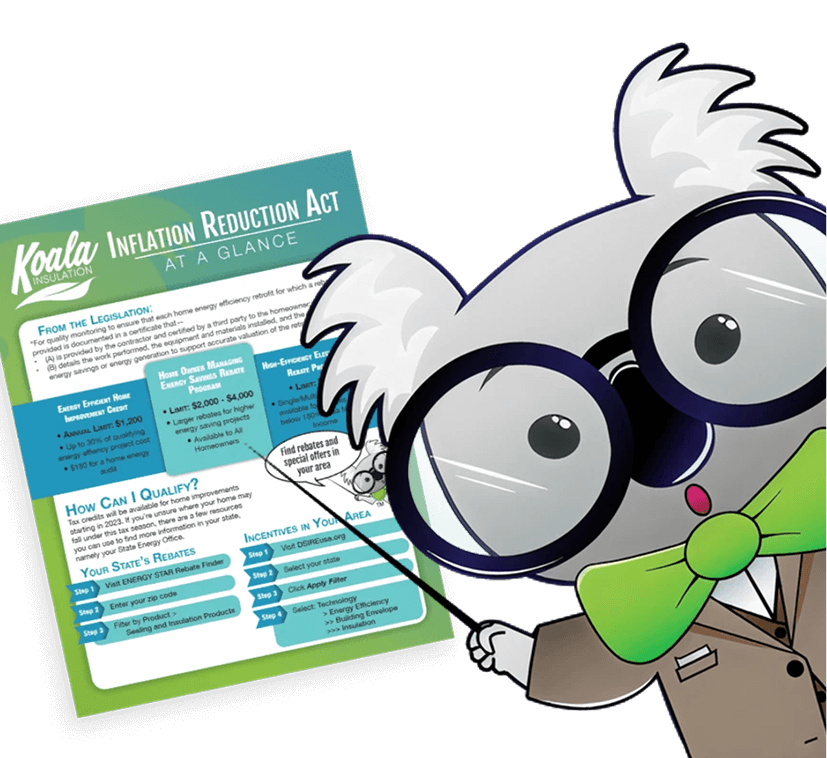Everyone wants to make their space more energy efficient. Home energy audit services are a smart way to find out how to conserve energy and lower monthly bills. An experienced auditor gives you a detailed roadmap of ways to reduce energy waste across your home’s lighting, HVAC, appliances, and insulation so you can make educated decisions about your home. Learn more about home energy auditing and what to do with the results.
What Is a Home Energy Audit?
Also known as a home energy assessment, it’s a detailed inspection of your home’s energy-related systems. During the evaluation, a qualified home energy auditor will review past and current energy bills, ask questions about the history of your appliances and HVAC systems, and conduct a detailed inspection of the home.
The primary goals of a home energy audit are simple.
- Identify where energy is being wasted. Pinpointing where energy is being lost and addressing it offers the most immediate results. Losses may be occurring through air leaks, old or inadequate insulation, or structural damage.
- Identify where energy use could be more efficient. The auditor may spot older, less efficient appliances and HVAC equipment that should be upgraded.
The Home Energy Audit Checklist
A comprehensive home energy audit will follow a detailed checklist as required by the Department of Energy and Internal Revenue Service if the homeowner plans to use the 25C tax credit (more on that later). There are three different levels of a home energy audit, each providing varying degrees of detail on the items below.
The checklist includes:
- Exterior inspection, including windows, doors, vents, walls, and roof, to spot signs of damage or gaps contributing to heat loss. Most auditors use thermographic imaging to identify air leaks.
- Interior inspection, including windows and doors, plus an evaluation of your home’s heating and cooling systems. This includes heating systems, air conditioning systems, and ductwork.
- Appliances, especially those with high energy consumption like dryers, washers, and dishwashers.
- Performance analysis, including past energy bills for each season. To understand the context surrounding energy performance, auditors also evaluate thermostat settings, home layout, floor plans, and occupancy patterns.
The audit results are consolidated into a detailed home energy assessment that provides recommendations and estimated savings. For example, the assessment may recommend removing and replacing insulation, upgrading to more energy-efficient appliances, or having a professional air sealing company address leaks.
The Benefits of a Home Energy Assessment
Your audit results help you prioritize home energy efficiency upgrades to maximize your return on investment, rather than making decisions based on best guesses. Those upgrades will lower your monthly energy bills, enhance comfort throughout your home, and may increase your property’s value, depending on the specific upgrades you choose.
Is a Home Energy Audit Worth It?
Absolutely! Level 1 and Level 2 energy audits for homes can pay for themselves simply by empowering homeowners to make smart choices with their home upgrades. For example, in cost-conscious and environmentally conscious households, it’s invaluable to know that adding spray foam insulation will do more good than buying a suite of new home appliances. Level 3 energy audits will also pay for themselves, although they’re primarily only relevant for very large homes, multi-family properties like apartments and condos, and commercial and industrial facilities.
How Much Does a Home Energy Audit Cost?
The cost of a home energy audit varies by region, the size of the home, the experience of the home energy audit company, and the level of detail in the audit. Additional services, such as duct testing and infrared (thermographic) imaging, may incur an extra cost.
- Level 1 – This walk-through audit is primarily visual and costs less than $250.
- Level 2 – This includes specialized testing and a review of past utility bills. The resulting report is more detailed and typically runs between $250 and $650.
- Level 3 – The most comprehensive home energy audit, this is typically reserved for large homes with significant energy demands. The results are extremely detailed, and the service usually costs $600 or more.
Homeowners can offset these costs by using relevant local energy rebates and tax credits, such as the 25C tax credit or Energy Efficient Home Improvement Credit.
To claim the Energy Efficient Home Improvement Credit, you must work with a certified home energy audit contractor or company. Since 2024, auditors must include their business employer identification number (EIN) in the report for the homeowner to claim the credit. They must also include proof of certification in the report.
Read More: Your Guide to Sustainable, Eco-Friendly Insulation
Take a Closer Look at Your Home’s Energy Use
Your local Koala Insulation contractor can help you assess and improve your home’s insulation, resulting in significant energy savings almost immediately. We’ll recommend the right insulation to suit your needs and perform the work quickly and efficiently, so you and your family can enjoy the results right away. Invest in your home’s energy efficiency; find the Koala Insulation location nearest you today!
Find Your Location


Get a quote






